Spring 2023 :Course List & Time Tablesをご参照ください
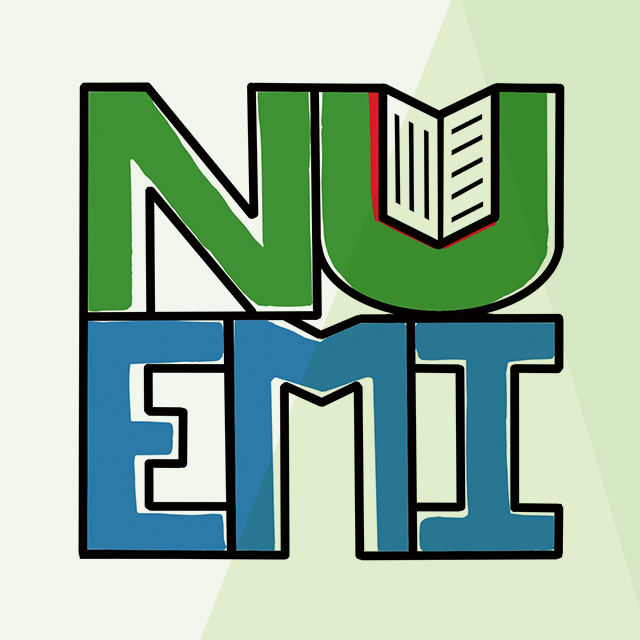
2023 Spring
Monday Fall 2022

Post-Cold War Security Studies

Mathematics for Machine Learning
この講座は機械学習に用いられる数学の入門です。授業は英語で行われます。この科目に興味のある人や英語で行われる授業に参加したい人は、名古屋大学の学生であれば誰でも大歓迎です。この講座の受講する場合、線形代数と微積分の基礎的な内容に慣れている方が望ましいですが、最初の講義でPythonを基礎から学びますのでプログラミングの知識は不要です。 Visit https://www.henrikbachmann.com/mml2022.html for updates on the course, and feel free to join the discord server, which will we will use during the semester for communication.

Fundamental of Earth Science I
Let’s explore the Earth and its history together!

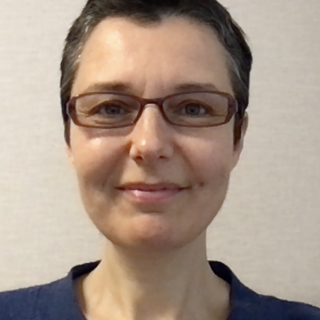
Introduction to Skills for Success
This course will help you explore why you study and provide you with different learning strategies that can be used immediately in your other courses. Note: This is a very interactive course, so please come prepared to think, share your opinion and discuss the topics in class actively.
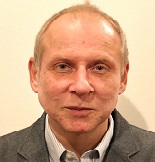
Inorganic Chemistry II
This course is possibly best suited for students who already took the Japanese course and want to focus on improving their English.
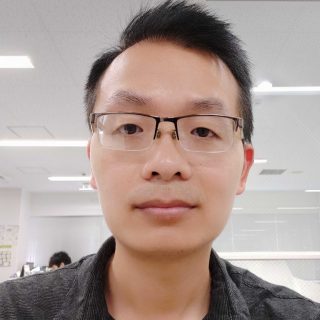
Quantum Chemistry II
The purpose of this course is to apply quantum mechanics to study molecules. It is an extension of Quantum Chemistry I, although it is easier.
Tuesday Fall 2022
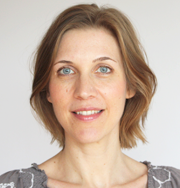
Critical Literary Analysis
In this course we will travel back to March 11, 2011 and its aftermath. We will learn about the triple disaster itself and study a variety of cultural responses (literature, performing arts, cinema, music, etc.). The workload for this course is very high, but except for readings on the theoretical and socio-political background, all readings are available in Japanese, which should ease the workload a bit. Especially at a time when the Japanese government is recommitting to nuclear power, it will be crucial to look back at 2011 and compare the contemporary discourse with today’s situation. If you are not sure this course is for you, you are welcome to just sit in for the first few times!

Linear Algebra I
Linear Algebra is one of the most important tools for mathematicians, physicists, computer scientists, engineers, chemists, etc. This course is a linear algebra which is targeted at non-mathematician, i.e. it includes a lot of examples. We will start really slowly with by learning how to solve linear equations systematically and then see how this can help in a lot of applications. If you already took a linear algebra in Japanese, then this course might also be a possibility to learn the English vocabulary for it!
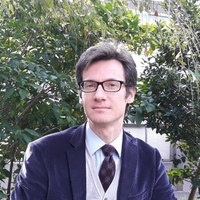
Legal Cultures (E)
Law is deeply connected to culture and society: let’s take a look at different ways of interpreting and applying the law.
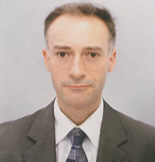
Science of Materials
The course is easy, without complicated maths. but it still touches important concepts of science and materials. So you will see some easy formulas and will have to use your brain to listen and understand. You will realize that the different branches of sciences, like mechanics, optics, thermodynamics, chemistry etc are in fact described by the same universal concepts, making the understanding of everything more simple.
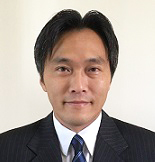
Fundamental of Physics I
This is the first of three lecture courses (Fundamentals of Physics I–III) designed to cover the basic classical physics to provide a firm foundation for learning science and engineering, and is offered to undergraduate students in their first year. This course introduces the concepts and laws of classical mechanics. Specifically, the lecture covers various concepts such as Newton’s second law, force, work, kinetic and potential energy, conservation of energy, center of mass and linear momentum. Basic physical and mathematical concepts such as velocity, acceleration, vectors, differentiation and integration are also reviewed.
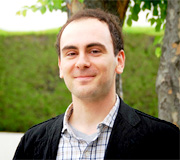
Political Science Methodology
This class is an introduction to quantitative analysis, from the political science perspective. It uses more math than most social sciences classes, and is probably easier to understand because of it. Because this is an introductory level class, advanced math skills are also not required. You should have an understanding of basic algebra.

Analytical Chemistry
If you would like to challenge yourself in taking this course you are very welcome!
Wednesday Fall 2022

Special Math Lecture: Groups and Their Representations
Come, and enjoy mathematics!

International Migration
This class looks at international migration issues and trends. It should be especially interesting for students with some international experience or interested in spending time abroad.

Fundamentals of Biology 1
All students are welcome to join this course. For this semester, part of the course will be done in collaboration with North Carolina State University through the COIL program. Active participation from all students is highly encouraged.

First Year Seminar
All students are welcome to this seminar! Let’s share the excitement of science!
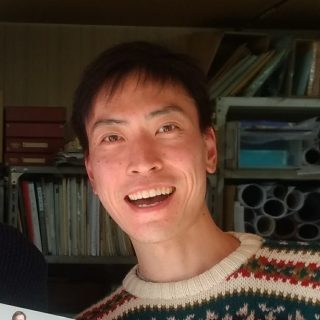
Basic Seminar A/First Year Seminar
Anyone with interest is welcome to this course. The only thing I ask of you is to leave all the preconception at the door and participate as an individual eager to explore new subjects (just because you are categorized as “Japanese students,” please don’t attempt to “represent” that category: everyone is different).

Analytical Mechanics I
This is the first of two courses in analytical mechanics. Analytical mechanics abstracts from Newtonian mechanics and generalizes it to a versatile framework that can be applied to various areas of physics, such as quantum mechanics, statistical mechanics, and relativity. After a survey of elementary principles, we discuss the core concepts of Lagrangian and Hamiltonian mechanics, with special emphasis on symmetry principles, followed by some explicit examples.
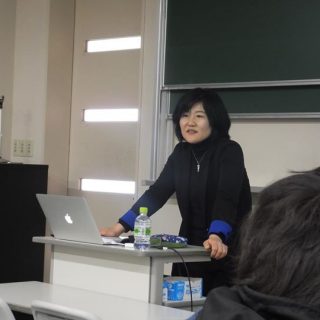
Organic Chemistry I
This course was designed to promote understanding introductory organic chemistry and to help students build a logical framework for understanding fundamental organic chemistry. The primary purpose of this course is to help students build a logical framework for understanding fundamental organic chemistry. The course emphasizes how the organic molecular structures and the electron density compositions are related to patterns of organic chemical reactions.
Thursday Fall 2022

Introductory Accounting 1
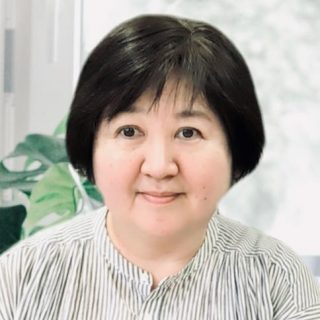
Thinking about Japanese society in the 21st century from gender perspectives
- Thinking about Japanese society in the 21st century from gender perspectives
- Thinking about Japanese Society in the 21st Century from Gender Perspectives
This course includes not only G30 students but also exchange students from NUPACE. We thus have a diverse group of students of different nationalities. It will be a quite interesting experience for Japanese students to get to know various situations and issues regarding gender.

Comparative Law II (Continental Law) (E)
Let’s learn about the legal systems of the world!
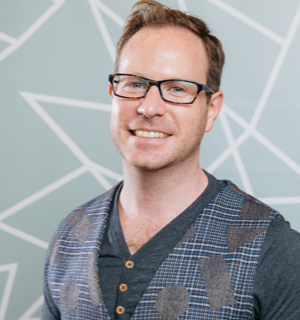
Literary Theory
This course provides an overview of literary theory from the early 20th Century to present day. It explores various theoretical approaches to reading texts. For students new to literary theory, this course can serve as an introduction. For students already familiar with theoretical approaches to literature, it can also extend the knowledge and understanding of such approaches. All reading and discussion will be conducted in English. English-language translations of reading will be distributed when necessary. Students are welcome to consult translated texts in their original language, but the version used for class discussion will be in English. In addition, over the course of the semester, students will undertake a close reading of Girl, Woman, Other by Bernardine Evaristo (2019). At the end of this course, students will have a thorough understanding of multiple approaches to literature, and experience of close reading of a multitude of texts.

Comparative Literature
This course aims to introduce students to a selection of literary works, from the early 19th Century to the early 21st Century, across various cultural and linguistic boundaries. Through close reading of various texts, students will discuss these works in relation to their unique socio-cultural contexts, their narrative and stylistic composition, as well as their role as ‘world literature’. In addition, students will apply these principles through creative practice in writing poetry, prose, or creative non-fiction pieces. At the end of this course, students will have a thorough understanding of multiple creative approaches to writing and comprehending literature, experience of close reading of a multitude of texts, as well as practical creative skills for future practice.
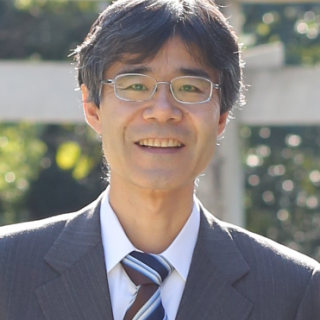
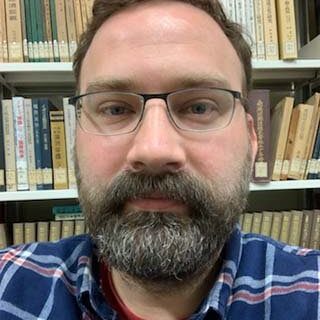
New Perspectives on Modern Japanese History
Please join us to learn new approaches to understanding Japanese history from an outside perspective!

Physical Chemistry I
This is physical chemistry: we use physics to explain chemical phenomena. The course is an upgrade to what you learned in Fundamentals of Chemistry.
Friday Fall 2022

Studium Generale A
Studium Generale is the easiest English-taught course in the G30 international program! The course introduces different topics at a beginners level, so no previous knowledge is required. All lectures are recorded and can be watched any time. The course is entirely online, so students from any campus can join – no travel required, just switch your computer on and join. This is the perfect starting point to get a taste of lectures in English and see that you can do it!

Introduction to Life Sciences B
This course is an introduction to biology for beginners. If you wanted to learn more about biology, this is a good place to start. Everyone is welcome!

Linear Algebra I
Linear Algebra is one of the most important tools for mathematicians, physicists, computer scientists, engineers, chemists, etc. This course is a linear algebra which is targeted at non-mathematician, i.e. it includes a lot of examples. We will start really slowly with by learning how to solve linear equations systematically and then see how this can help in a lot of applications. If you already took a linear algebra in Japanese, then this course might also be a possibility to learn the English vocabulary for it!

Earth and Planetary Sciences
Let’s take a voyage in space to explore our solar system and beyond!
Monday Spring 2022

Basic Seminar B/ Shota Ogawa
This course introduces students to contemporary topics in cinema studies, notably at the intersection of globalization, cinema, and cultural criticism. We usually get a diverse group of students not just in terms of their places of origin, but also their level of familiarity with the topic. The course does involve a fair amount of writing (academic composition), but students generally enjoy the opportunity to discuss cinema in a guided setting.
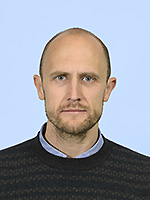
Basic Mathematics/ Erik Darpö
Much of the material in this course will be already familiar for Japanese students from high school. Suitable for those who wish to revise basic material, or just practice their English in an academic setting.

Biochemistry II/ Seiji Kojima
Sugar, lipid, and enzyme are the topics in this course. I hope it will be fun to learn about the biochemical properties of them.

Quantum Chemistry I/ Quan Phung
The purpose of this course is to introduce quantum mechanics for chemistry students chemistry students. Thus, it will be not as difficult as quantum mechanics for physics students. The main language will be in fact calculus and kindergarten English.
Tuesday Spring 2022
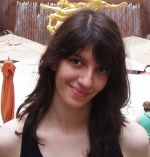
Microeconomics I/ Maria Martin-Rodriguez
This course could be very well known as “mathematics applied to the human mind”. You are going to learn a lot about how people make decisions, but you need to know some calculus to keep up with the lessons.

Fundamentals of Earth Science II/ Marc Humblet
Everyone interested in learning about Earth Science is welcome. If you have questions, don’t hesitate to contact me.
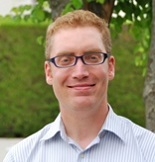
Corporate Law and Governance/ Sean McGinty
In this course we’ll learn about corporate law and governance, an important topic in today’s world. I try to make the lectures fun and interesting, so please feel free to join!
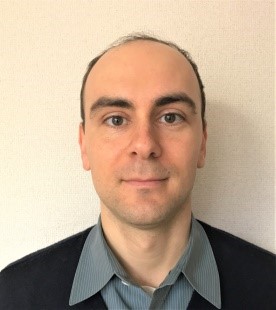
Political Science/ David Green
This course is an introductory comparative politics class. No prior knowledge of politics is required. The current plan is to have pre-recorded lectures, which allows for repeated viewings if necessary. Should all enrolled students be physically present in Nagoya we will move to in-person classes.

Linear Algebra II/ Henrik Bachmann
Linear Algebra II considers arbitrary vector spaces and we will discuss the important topic of Determinants, Eigenvalues & Eigenvectors. This has a lot of applications in various fields of natural sciences. You can find a detailed overview of this course on the course homepage of last year here: https://www.henrikbachmann.com/la2_2021.html
https://www.henrikbachmann.com/la2_2022.html

Inorganic Chemistry I/ Gabor Samjeské
A good opportunity to get into contact with foreign students.
Wednesday Spring 2022


Japanese Literature and Gender / Kristina Iwata
Hello everyone, in this course we will discuss about “pregnancy” and “childbirth” in a way that might be new to you if you are not a Humanities student. Of course, those are biological phenomena, but we will talk about them as political events. Please be prepared to read one novel per week (feel free to read the Japanese original, but you will need to find the original yourself in most cases) and very actively participate in discussions. It’ll be a lot of fun and probably change the way you think about “literature” (in addition to pregnancy and childbirth)!

Modern Biology/ Itzel Bustos Villalobos
Dear Students: The content of the class is pretty easy and I believe is a great chance to get the experience of having classes in English as well as make friends from abroad. When you leave the fear of attending something that is “not so easy” is when you growth the most. Take the advantage while learning Modern Biology 🙂

Special Mathematics Lecture (Introduction to data assimilation equations and dynamical systems)/ Serge Richard

Critical Theory/ David Thomas Henry Wright
Through critical theory, this course investigates the cultural, political and philosophical implications of globalization. It provides an opportunity to engage in serious critical reflection on questions of progress, multiculturalism, and authority. Although literature is the main focus we will also explore these critical concepts and approaches through other media. In addition, over the course of the semester, students will undertake a close reading of The Crying of Lot 49 by Thomas Pynchon (1965). At the end of this course, students will have a thorough understanding of multiple approaches to critical theory, and experience of close reading a multitude of texts.

Comparative Culture/ David Thomas Henry Wright
This course introduces students to Literary Modernism. As works such as those by Freud, Darwin, Marx, and Nietzsche began to change the world’s ideas in the 19th Century, works of literature around the world underwent a great transformation. Writers such as Woolf, Eliot, Joyce, and Kafka presented revolutionary ideas about aesthetics, creativity, gender, culture and society. Through readings of these and other authors, students will compare and contrast the cultural changes that took place. Although literature is the main focus we will also explore Modernism in other media. All reading and discussion will be conducted in English. Students are welcome to consult translated texts in their original language, but the version used for class discussion will be in English. At the end of this course, students will have a thorough understanding of multiple approaches to literary modernism, and experience of close reading of a multitude of texts.

Fundamentals of Physics III/ Bernard Gelloz
The course is rather intensive, but if you have some previous knowledge of electrostatics and magnetism, it should be easier to follow. Also, there is a tutorial associated to this course. You may consider taking it too. Its name is Fundamental Physics Tutorial IIa.

Genetics II/ Seiji Kojima
Transcription and translation are the topic of this course. At the final lectures, we will learn about how to read a genetics paper.
Thursday Spring 2022

Fundamentals of Chemistry II/ SHIN Jiyoung
We are learning each chapter together. If you get any part hard to understand, do not hesitate to ask others. Acting fast can solve the problem precisely.
注意事項:
Please remember that there is a prerequisite to take the course.
聴講について:
Students are recommended to prepare each lecture by reading the scheduled chapters and to review it by solving the related homework questions. The course acquires sufficient efforts of participants to complete the entire course, where students auditing only can annoy other students and give a negative influence.

Fundamentals of Biology 2/ Maria Vassileva
This course introduces you to how your own body works, and helps you understand both health and disease. Active participation (questions!) is highly encouraged and preparation before class (reading the textbook in advance) is expected. All course materials can be accessed online, but hopefully we will have a chance to move to a classroom and discuss in person. Anyone is welcome, whether taking the course for credit or just for fun. Feel free to ask for any accommodations you might need.

Advanced Lecture (Comparative Private Law)/ Giorgio Fabio COLOMBO
This class will provide with the basic notions about international sales of goods. It is held entirely online (on demand) for this term, so you can access the materials anytime.

Quantum Mechanics I/ Masaki Shigemori
I got my undergraduate and master’s degrees in Japan and then went to the US to get a PhD. You can ask me about abroad for degrees in science.

Analytical Mechanics II/ Masaki Shigemori
I got my undergraduate and master’s degrees in Japan and then went to the US to get a PhD. You can ask me about abroad for degrees in science.

Physical Chemistry II/ Quan Phung
This a 3rd year course. You must know the concept of reciprocal lattice for this course. Basic knowledge of quantum mechanics is needed.
Friday Spring 2022
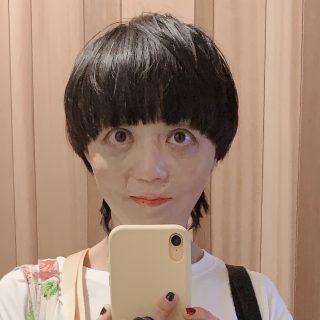
Culture and Representation/ Ma Ran
Hello all, it would be great if you give it a try for the first lecture, and build up some self-confidence. At the same time, most of the G-30 students who take the course are not from the backgrounds of humanities, so it is a great chance to learn something exciting yet fundamental about cities and urban culture together (in English)!

Special Lecture (Studium Generale II)/ Maria Vassileva
Studium Generale (ストゥディウム・ゲネラーレ) is the easiest course in G30 and is open to all majors at Nagoya and Gifu Universities. In this course you will hear about many different topics, and will have a chance to discuss with students from many different schools. You are encouraged to do your own little project on a chosen topic and present it at the end of the semester. While the course content is introductory, please note that we expect all participating students to be able to read, write, understand lectures and speak out their thoughts in English. If that is difficult for you but you want to try anyway (and you don’t need course credit) – there is an Open Course version where you can access lectures content on-demand, without the homework and other pressure of the credit course. Choose your style and join!
注意事項:
This course is formally part of regular JP program curriculum, so all JP students can gain credit that counts towards graduation.

Special Lecture Biology in English/ Maria Vassileva
This course is specially designed for students from the regular Japanese program who want to learn basic Biology in English in order to then be able to expand their study and research in Biology using English.
注意事項:
This course is part of the regular JP program ILAS curriculum (Special Lectures) and 2nd year students can get credit counting towards graduation.

Environmental Earth Sciences/ Marc Humblet
Welcome to Environmental Earth Sciences!
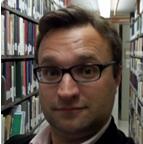
Introduction to Studies of Culture/ Dylan McGee
In this class, we will explore some of the ways in which digital technologies mediate our social lives and experiences within contemporary culture. All are welcome!
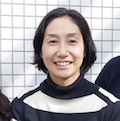
Exploration of Japan: From the Outside Looking inside/ Hitomi Takaki
多文化間コミュニケーションに興味があり、「文化」や「多様性」について探求したい方、将来、海外に行きたい方海外での経験を振り返りたい方、国際的に活躍したい方など、授業の履修をお待ちしています。多様なバックグラウンドを持つ学生同士で出逢い、視野を広げ、共に国際感覚を養っていきましょう。
*聴講について:授業の後半でグループプロジェクト・発表を行いますので、積極的な参加が必要となります。他のグループメンバーの活動に関わってきますので、できるだけ履修登録をお願いいたします。大学院生などで履修登録ができない場合は、ご相談ください。

Social Science and Analysis Methods II/ Matthew Linley
I welcome all students who are enthusiastic about learning how to do empirical research in Political Science. This class will be especially useful for anyone considering going to graduate school abroad. We will learn in a friendly and comfortable atmosphere about the main methods for doing good research!

Calculus II/ Serge Richard

Condensed Matter Physics II/ Bernard Gelloz
This a 3rd year course. You must know the concept of reciprocal lattice for this course. Basic knowledge of quantum mechanics is needed.
Monday Fall 2021

Introduction to Film History, Ma Ran
こちらの講義は「月曜3限」に変更になりました。(2021/9/28 JH)

Introductory Macroeconomics I, Maria Martin Rodriguez
This is a course to separate you from the mudbloods, you know, these people who think that tariffs are good to protect the economy. Here you will learn about the basic macroeconomics concepts and how the most common economic policies work so that you can clearly see their pros and cons.

Advanced Lecture (Post-Cold War Security Issues), Matthew Linley
Join the class and learn about the main security issues that face all countries, including Japan. We discuss theoretical ideas and real issues like war.

Inorganic Chemistry II, Gabor Samjeske
If you already have knowledge about some of the topics taught in this course, it will help understanding and improving your English by repetition

Linear Algebra 1(Mon&Tue), Henrik Bachmann
Linear Algebra is one of the most important “must-have”-knowledge for any student doing natural sciences. A detailed plan of the content can be found on the course homepage (https://www.henrikbachmann.com/la1_2021.html). Any students are welcome!

Complex Analysis, Erik Darpö
The purpose of this course is to introduce the basic theory of analytic functions in a single variable. A good understanding of first year calculus and linear algebra will be necessary to follow the course. Prior knowledge of complex numbers will be helpful, but not strictly necessary
詳細はこちらに掲載予定です http://www.math.nagoya-u.ac.jp/~darpo

Fundamentals of Earth Sciences 1, Marc Humblet
Everyone interested in learning about Earth Science is welcome. If you have questions, don’t hesitate to contact me.

Condensed Matter Physics I, Bernard Gelloz
By the end of this course, students should be equipped with knowledge and skills concerning the following: 1) Explain why crystal form in specific structures in relation to atomic bonding mechanisms. 2) Know the most common crystal structures and why these are common.. 3) Understand the basics of crystal classification based on symmetry analysis. 4) Understand the concept of reciprocal lattice and how it is related to diffraction of waves. 5) The relations of the reciprocal lattice with Fourier analysis and plane waves.
*まだ2021 Fallのシラバスが公開されていないため、参考までに2021 Fallのシラバスを掲載しています。内容はほぼ同じだそうす。

Fudamentals of Chemistry I, PHUNG Quan Manh
The purpose of this course is to grasp the physical basis of the interactions between particles and of the behavior and properties of matter. The main language is math!

Quantum Chemistry II , PHUNG Quan Manh
The purpose of this course is to employ the principles of quantum mechanics to study chemical bonding and molecular structure. The main language will be math!
Tuesday 2021 Fall

Analytical Chemistry, Gabor Samjeske
If you already have knowledge about some of the topics taught in this course, it will help understanding and improving your English by repetition

Special Topics in Biology VI, Maria Vassileva (Second quarter)
Special Lectures in Biology 6 is part of a series of courses under the theme “Biology in English”, that is designed specifically for the Japanese students. The course walks students through the basics of plant biology in a simple and clear way. Students get to practice reading texts in English, discussing in groups and making presentations on science-related topics.

Special Topics in Biology V, Maria Vassileva (First quarter)
Special Lectures in Biology 5 is part of a series of courses under the theme “Biology in English”, that is designed specifically for the Japanese students. The course walks students through the basics of cell structure in a simple and clear way. Students get to practice reading texts in English, discussing in groups and making presentations on science-related topics.

Science of Materials, Bernard Gelloz
The objectives of the course are to introduce universal concepts in Science and their application to materials. To understand the relationships that exist between the structural elements of materials (microscopic properties) and their properties and performance (macroscopic properties). Students will be able to understand the origins and mechanisms of materials mechanical, electrical, thermal, magnetic, and optical properties.
Wednesday 2021 Fall

International Migration, David Green
This course aims give students a broad understanding of international migration and its surrounding issues. We will discuss migration theory, review the history of modern migration movements, and focus on the migration issues affecting several different regions. Lectures will be pre-recorded and you can listen to them as much as necessary. A reasonably good command of English is recommended.

First year seminar A in Mathematics, Erik Darpö
In this seminar course, we will have a look at some fundamental concepts of mathematics, such as sets, functions, relations, and numbers. While these are foundational notions that underlie all modern mathematics, they are often only cursorily treated in first year university courses. The purpose of this seminar is to provide a provide a somewhat stronger foundation for a university level mathematics studies.
詳細はこちらに掲載予定です http://www.math.nagoya-u.ac.jp/~darpo

Fundamentals of Biology I, Joyce Cartagena
Everyone’s welcome to join this course. Please sign-up via NUCT and don’t hesitate to contact the instructor for questions.

Special Mathematics Lecture: Differential equations and dynamical systems Serge Richard
Come, see, and enjoy.

Introduction to Japanese Modern Literature, Kristina Iwata
In this course we will read a number of texts that you might already be familiar with, but discuss them in a different way. All primary texts can be read in Japanese, so the hurdle for your participation should low!

First year seminar A, Marc Humblet
In this course we exchange opinions on various topics related to science and the environment. If you would like to join, you are more than welcome!
Thursday Fall 2021

Biotechnology, Joyce Cartagena
Everyone’s welcome to join this course. Please sign-up via NUCT and don’t hesitate to contact the instructor for questions.

Comparative Law I (Common Law) , Sean McGinty
I hope you will take this class, I try to make it an interesting introduction to the common law world!

Literary Theory, David Thomas Henry Wright
This course provides an overview of literary theory from the early 20th Century to present day. It explores various theoretical approaches to reading texts. For students new to literary theory, this course can serve as an introduction. For students already familiar with theoretical approaches to literature, it can also extend the knowledge and understanding of such approaches. All reading and discussion will be conducted in English. English-language translations of reading will be distributed when necessary. Students are welcome to consult translated texts in their original language, but the version used for class discussion will be in English. In addition, over the course of the semester, students will undertake a close reading of Girl, Woman, Other by Bernardine Evaristo (2019). At the end of this course, students will have a thorough understanding of multiple approaches to literature, and experience of close reading of a multitude of texts.


Physical Chemistry I, Quan Phung
The purpose of this course is to grasp the physical basis of the interactions between particles and of the behavior and properties of matter. The main language is math!

Comparative Literature, David Thomas Henry Wright
This course aims to introduce students to a selection of literary works, from the early 19th Century to the early 21st Century, across various cultural and linguistic boundaries. Through close reading of various texts, students will discuss these works in relation to their unique socio-cultural contexts, their narrative and stylistic composition, as well as their role as ‘world literature’. In addition, students will apply these principles through creative practice in writing poetry, prose, or creative non-fiction pieces. At the end of this course, students will have a thorough understanding of multiple creative approaches to writing and comprehending literature, experience of close reading of a multitude of texts, as well as practical creative skills for future practice.
Friday Fall 2021
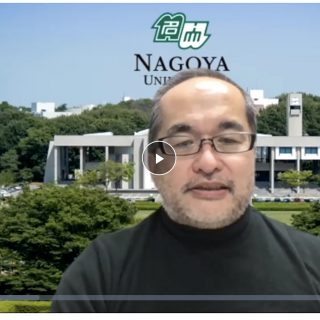

Algebraic Number Theory (代数的整数論) Henrik Bachmann
All information can be found on the course homepage: https://www.henrikbachmann.com/algnt_2021.html If you have any interest in number theory you are welcome to join!

Studium Generale I, Maria Vassileva
Studium Generale is the easiest English lectures experience at Nagoya University! It is specifically developed with the purpose of offering exactly this – an experience. An experience in lectures in English (all recorded, so you can stop and listen again at any point!), an experience of learning about fields of science and society outside your major (all at introductory level, so no need to prepare before class and read textbooks), and an experience to discuss various topics with other students in English (both Japanese and international students join this course – make new friends!). Come and expand your horizons. You’ll be surprised how much you can actually learn about the world and yourself in one short semester!
While completing Studium Generale does not require reading a heavy textbook, the course will require listening to lectures, actively participating in group discussions and writing reports every week. 毎週、講義を聴いた上で、グループディスカッションへの積極参加、およびレポート提出が求められます。
*教員へのメールは不要です。単位取得される方は履修登録を。聴講・お試し受講の方は、リンクよりOpen Courseの登録をしてください。(Studium Generale ホームページ)

Literature, Dylan McGee
Japanese students are welcome to enroll in this class and share their insights into Classical Japanese literature (and the way it has been adapted in print and digital media).
* 履修を決めた方、お試ししたい方は、Literature signup sheetのリンクより情報を入力してください。教員からCANVASの招待の連絡があります。(教員へのメールは不要です。)

Earth and Planetary Sciences Marc Humblet
This course is for everyone interested in exploring our solar system and beyond. If you have questions, don’t hesitate to ask me!
Monday Spring 2021

Introduction to Geology/ Marc Humblet
Let’s explore earth together! Don’t hesitate to join the course!

Social Science Analysis and Methods II/ Matthew Linley
Conditions: Students will require a high level of English to take this course and should have completed previous courses in Political Science. It is recommended for only 3rd and 4th year students.
Message from instructor: Students who want to do their own social science research should take this course. If you are planning to do a Master’s degree in political science at a university abroad, you should build a toolbox of methods you can access anytime to answer research questions. I will do my best to help you learn this challenging subject.

New Perspectives on Modern Japanese Literature (Food & Literature)/ Kristina Iwata
In this course we will explore “Food in modern Japanese literature” from many different angles. Make sure to have lunch before joining the classes!

Basic Mathematics /Eric Darpo
Most of the content of this course is covered in the Japanese high-school curriculum. You are welcome to try it out and see what you think before deciding if you want to continue.

Introductory Microeconomics II/ Maria Martin Rodriguez
Message for the instructor: The course analyzes how economic agents make choices and the implications of these in the market equilibrium and welfare. It is a nice course but we will use some math because you know, you probably know some idiots but we assume that people are rational and don’t make choices randomly 🙂 Please join us if you want to know how rational people think!

BiochemistryII/ Seiji KOJIMA
Message for the instructor: This course is to get knowledge of biochemistry and based on the textbook of Voet.

Fundamental Physics III/ Bernard GELLOZ
Conditions for applying: calculus is necessary (1D, 2D, 3D integrals; derivatives)
Message from Instructor: This course is quite intensive. Two classes per week. Calculus is necessary. New and sometimes complex concepts are introduced. Registration for Fundamental Physics Tutorial IIa (FPTIIa) is recommended. It is a tutorial for this course. Need to spend at least several hours per week studying in order to do well. There are weekly online assignments in WileyPlus (cost ~4000 Yens). WileyPlus also gives you access to the electronic book.

Quantum Chemistry I /PHUNG Quan Manh
The purpose of this course is to introduce quantum chemistry. The main language is math. I have to admit that quantum chemistry is weird and learning it will be both fun and confusing.
Tuesday Spring 2021

Exploration of Japan (留学生と日本)/Hitomi TAKAKI
多文化間コミュニケーションに興味があり、「文化」や「多様性」について探求したい方、将来、海外に行きたい方、海外での経験を振り返りたい方、国際的に活躍したい方など、授業の履修をお待ちしています。多様なバックグラウンドを持つ学生同士で出逢い、視野を広げ、共に国際感覚を養っていきましょう。

Plant Biotechnology/ Joyce Cartagena

Advanced Lecture (Corporate Law and Governance) (E)/Sean McGinty
This is a somewhat complex area of law, but I try to keep the lectures simple and easy to follow. If you have any interest in corporate law or corporate governance I encourage you to join!

Fundamentals of Earth Science 2/ Marc Humblet
Let’s explore Earth together! Don’t hesitate to join the course!

International Politics/ David Green
This is an introductory comparative politics course, aimed at students who are not political science or law majors. As such, we assume students have not studied much political science, and take things from the beginning fairly slowly. This kind of course would be ideal for Japanese students.

Introductory Econometrics II/ Maria Martin-Rodriguez
We are going to focus exclusively on hypothesis testing, for one and two populations. The course is useful as an introduction for those students interested in conducting serious econometric analysis in the close future, but it is tough if you are not familiar with the contents covered in Introductory Econometrics I.

Linear Algebra II/ Henrik Bachmann
Conditions:The Students should have a basic knowledge on Linear Algebra I. An overview can be found here: https://www.henrikbachmann.com/la1_2020.html . But at the beginning of the course we will recall a lot of things and do everything more general, i.e. also students who did not take Linear Algebra I are welcome to join!
Message from the instructor: If you are a student doing anything related to natural science then you need to have basic knowledge of Linear Algebra (At least if you want to be successful in your research & job). Since the English used in math classes is quite simple compared to other classes (like physics, chemistry, or biology) this class would be a perfect opportunity to try following a lecture taught in English. If you are a student who already had Linear Algebra (In Japanese) then this course is also a perfect opportunity for you to learn the corresponding English words for this course.

Inorganic Chemistry I /Gabor Samjeske
Why not experiencing some English as a Medium for Instruction (EMI) or perhaps refreshing the chemistry knowledge?
Wednesday Spring 2021

Marine Geology/ Marc Humblet
Let’s explore the ocean floor together! Don’t hesitate to join the course!

Plant Physiology/ Joyce Cartagena
All Japanese students are welcome to join this course 🙂

Special math lecture: Introduction to probability/ Serge Richard
Just come and see

Contemporary Issues in Japanese Migration/ David Green
This class is a study of immigration to Japan. As such, Japanese students may be familiar with some of the issues and terminology, and a large amount of information and research is available on the subject in Japanese. This may make it somewhat easier for Japanese students to follow along.

Inorganic Chemistry III/ Gabor Samjeské
Why not experiencing some English as a Medium for Instruction (EMI) or perhaps refreshing the chemistry knowledge?

Thursday Spring 2021

Comparative Culture/ David Thomas Henry Wright
This course introduces students to Literary Modernism. As works such as those by Freud, Darwin, Marx, and Nietzsche began to change the world’s ideas in the 19th Century, works of literature around the world underwent a great transformation. Writers such as Woolf, Eliot, Joyce, and Kafka presented revolutionary ideas about aesthetics, creativity, gender, culture and society. Through readings of these and other authors, students will compare and contrast the cultural changes that took place. Although literature is the main focus we will also explore Modernism in other media. All reading and discussion will be conducted in English. Students are welcome to consult translated texts in their original language, but the version used for class discussion will be in English. At the end of this course, students will have a thorough understanding of multiple approaches to literary modernism, and experience of close reading of a multitude of texts.

Fundamentals of Biology II/ Maria Vassileva
Fundamentals of Biology 2 is an introductory course into the human physiology. Come to learn how your body works. This will help you understand how to keep yourself healthy, and make sense of all the popular health information (and disinformation!) around you.

Physical Chemistry II/ PHUNG Quan Manh
The focus of this course is about statistical thermodynamics, kinetics, and dynamics of chemical reactions. The main language will be math, thus I think Japanese students will be comfortable.
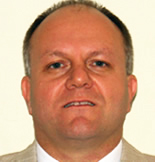
Statistical Physics III/ John Wojdylo
You must have studied Statistical Physics II.
Read the description in the the syllabus.

East Asia in World History/ HOPSON Nathan
This is a discussion-based upper-level seminar (for undergraduate 3rd- and 4th-year students and graduate students). It is VERY reading intensive, and the readings are HARD.

Critical Theory/ David Thomas Henry Wright
Through critical theory, this course investigates the cultural, political and philosophical implications of globalization. It provides an opportunity to engage in serious critical reflection on questions of progress, multiculturalism, and authority. Although literature is the main focus we will also explore these critical concepts and approaches through other media. In addition, over the course of the semester, students will undertake a close reading of The Crying of Lot 49 by Thomas Pynchon (1965). At the end of this course, students will have a thorough understanding of multiple approaches to critical theory, and experience of close reading a multitude of texts.

Special Topics in Biology 18/ Maria Vassileva
This course is an introduction to molecular biology and is developed with Japanese students in mind. Even if you don’t study biology, or are not comfortable using English – but would like to try – this course is for you.

Special Topics in Biology 17/ Maria Vassileva
This course is a beginner’s introduction to human physiology, developed with Japanese students in mind. Even if you don’t study biology, or are not comfortable using English – but want to try – this course is for you.
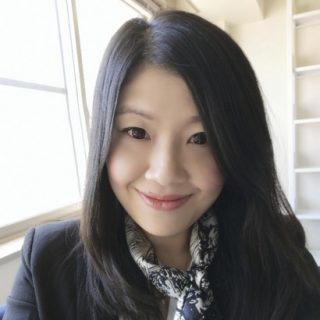
Introductory Practical Management II/ Wanling Lee
In this class, Finance contents will be taught! Students will be able to understand some of the basic terms, as well as the role that finance plays in the firms and markets today.
Friday Spring 2021

Environmental Earth Sciences/ Marc Humblet
Welcome to Environmental Earth Sciences!

Studium Generale II/ Maria Vassileva
*教員へのメールは不要です。単位取得を目指す方は、ポータルで履修登録、聴講の方はStudium Generaleのwebsiteから登録。websiteはhttps://www.bio.nagoya-u.ac.jp/G30StudiumGenerale/ あるいOpen Course登録フォームへhttps://forms.gle/QC3BFrffRsnUBtY26
Message form the instructor: Studium Generale is the easiest English lectures experience at Nagoya University! It is specifically developed with the purpose of offering exactly this – an experience. An experience in lectures in English (all recorded, so you can stop and listen again at any point!), an experience of learning about fields of science and society outside your major (all at introductory level, so no need to prepare before class and read textbooks), and an experience to discuss various topics with other students in English (both Japanese and international students join this course – make new friends!). Come and expand your horizons. You’ll be surprised how much you can actually learn about the world and yourself in one short semester!

Introduction to East Asian History/ Nathan Hopson
This is a “flipped” lecture class. That means: 1. You will listen to the lectures as homework. 2. We will work on projects during class time.

Condensed Matter Physics II
The purpose of this course is to gain a solid understanding of the basic behavior of electrons and atoms in solids and the consequences on the electrical and thermal properties. The course starts with easy classical models and progresses to more complex models while adding quantum ingredients.

Monday Fall 2020

Contemporary American Politics/ David Green
This course is an introduction to the American political system, which may be of some interest given the United States’ close relations with Japan. The material is not super challenging in my opinion, although there will be quite a bit of English!

Complex Analysis / Eric Darpo
The purpose of this course is to introduce the basic theory of analytic functions of one complex variable. If you are interested, you are welcome to try the course first and decide later if you want to continue.
Notice: Knowledge of multivariate calculus and linear algebra is necessary.

(G)Classical Japanese Literature / Dylan McGee
In this graduate seminar, we will be reading a range of Japanese literary works dating from the Heian to the Edo periods. While most of the students will be reading the texts in English translation, Japanese students are welcome to read in Classical Japanese and/or modern Japanese translations. Discussion will be mostly in English, though there will be close readings of some excerpts in Japanese. One to two students may be admitted on a auditing (not for credit) basis, but only if they are committed to attending regularly for the duration of the semester. Seats are limited, and I will need to prioritize spaces for students who are serious about participating in the class.
Notice: This content for this course will be delivered via CANVAS. Students who would like to participate in this course will need to sign up for a free account CANVAS to participate. We will be using CANVAS (not the School of Economics account).

Fundamentals of Chemistry 1 / PHUNG Quan Manh
My course, in my opinion, is very basic. A lot of concepts have been introduced at the high school level.

Special Problems(Post-Cold War Security Issues) / Matthew Linley
Welcome to Security Studies where we will study this fascinating subfield of International Relations. This course will involve lots of reading but also lots of interaction between students. I hope you will join us!
Notice: Must be 3rd or 4th year and have taken a course in Political Science and, preferably, International Relations

Fundamentals of Earth Sciences 1 / Marc Humblet
Let’s explore and study the Earth together!

Cell Biology 2 / Maria Vassileva
Cell Biology 2 class is an advanced cell biology course suitable for students who already have a good basic background in biology. The course covers membrane transport, endomembrane system, energy generation in cells and cell signaling. Students also get to read and present scientific papers.

Introductory Econometrics I / Maria Martin-Rodriguez
This is a warning! The course is useful to learn probability theory and some rudimentary inderence methodologies, but it is not particularly fun. Your own motivation and engagement is crucial for your own survival 🙂
Notice: I’d appreciate if students could notify if they decide to quit.

Linear Algebra 1 / Henrik Bachmann
All information will be on the course page: https://www.henrikbachmann.com/la1_2020.html
This is a basic introduction to linear algebra for non-mathematicians. If you are interested in natural sciences the content of this course is a must-have for your future career.

(G)Japanese Visual Culture / Dylan McGee
This graduate seminar is open to Japanese students at the MA or PhD level who would like to learn about the theories and methods of studying Japanese visual culture. It is a fun class, where we spend most of our time in group work analyzing visual artifacts from the late Edo period to the present. One or two students may be admitted on an auditing basis (not receiving credit), but only on the condition that they attend the discussion meetings regularly and do the readings.
Notice:Students should understand that this is a graduate seminar, and while we will be reading some texts in Japanese, many of the articles and books will be in English. Students comfortable with reading about thirty to forty pages of academic English per week, and participating in group discussion, should be fine taking this course.

Physiology and Anatomy 1/ Maria Vassileva
Physiology and Anatomy 1 is an advanced course that focuses on human physiology concepts. The course is suitable for students who already have a basic background in human anatomy and physiology, as it builds on this fundamental knowledge and discusses physiology processes at molecular level. A focus is made to show connections between organ systems and a connection between health and disease.

Inorganic Chemistry II/ Gabor Samjeske
Not for the faint hearted (笑) but perhaps a good opportunity to polish up the English vocabulary, helpful for everybody who wants to visit a laboratory abroad (wink, wink)
https://syllabus.sci.nagoya-u.ac.jp/detail/20200681120/
注意:Please make sure to formally register and (!!) unregister for the course (if you think it is too difficult)
Tuesday Fall 2020

Critical Literary Analysis / Kristina Iwata
In this class, we will examine cultural responses to the 3.11 disasters, with a focus literature. JACS courses are discussion-based and very lively, so come and join us!
Notice: It would be extremely helpful if prospective students could contact me by email before the first class meeting.

Introductory Microeconomics I / Maria Martin-Rodriguez
The course is an introduction to Microeconomic Theory, which is something that all human beings should learn these days in order to understand the world we live in 🙂
Notice: I’d appreciate if students could notify if they decide to quit.

Science of Materials / Bernard Gelloz
You will know why some atoms, when put together become metals or ceramics or polymers or semiconductors. You will know about all their main basic properties (mechanical, thermal, optical, magnetic, electrical). Some applications are discussed on the way.

Modern Japanese Culture and Asia / Nathan Hopson
This seminar explores aspects of modern Japan’s cultural, historical, socioeconomic, and political relations with Asian neighbors. We will begin more or less in the present. After assessing the recent state of affairs, we will jump back a bit more than a century to the Russo-Japanese War period (1904-1905). From there, we will proceed more or less chronologically through some of the major themes that have characterized those relationships. (It’s not as complicated as it sounds…) This is a discussion-based seminar, and thorough preparation is absolutely necessary. It is difficult for native students.
Notice: This is NOT a lecture course

Special Topics in Biology VI / Maria Vassileva
Special Lectures in Biology 6 is part of a series of courses under the theme “Biology in English”, that is designed specifically for the Japanese students. The course walks students through the basics of plant biology in a simple and clear way. Students get to practice reading texts in English, discussing in groups and making presentations on science-related topics.

Special Topics in Biology V / Maria Vassileva
Special Lectures in Biology 5 is part of a series of courses under the theme “Biology in English”, that is designed specifically for the Japanese students. The course walks students through the basics of cell structure in a simple and clear way. Students get to practice reading texts in English, discussing in groups and making presentations on science-related topics.

Analytical Chemistry / Gabor Samjeske
Not for the faint hearted (笑) but perhaps a good opportunity to polish up the English vocabulary, helpful for everybody who wants to visit a laboratory abroad (wink, wink)
Notice:Please formally register and (!!) unregister for the course (if you think it is too difficult)
Wednesday Fall 2020

International Migration/ David Green
This course focuses on international migration studies, basically the study of immigration over time and in different regions. The course content is not too difficult to understand in my opinion, although there will be quite a bit of English.

Mathematics for Machine Learning / Henrik Bachmann
All information are available on the course homepage: https://www.henrikbachmann.com/mml_2020.html
This is a basic introduction to machine learning. Basic knowledge in Linear Algebra & Calculus is necessary (e.g. the content of Linear Algebra 1 & Calculus 1). We will also do some programming in python. Programming knowledge is not necessary since we will try to learn it together during the course.

Contemporary Japanese Law I / Sean McGinty
Please take my course, it is a lot of fun (really).

(G)Field Seminar in Geobiology / Marc Humblet
Notice: This course only for graduate school students. This is because I would like to keep the number of participants low. This is a field seminary involving field trips.

Fundamentals of Biology 1 / Joyce Cartagena
Everyone is welcome!

First Year Seminar A / Marc Humblet
Let’s enjoy discussions about a wide range of topics related to the environment!

Analytical Mechanics 1 / Masaki Shigemori
This is the first of two courses in analytical mechanics. Analytical mechanics abstracts from Newtonian mechanics and generalizes it to a versatile framework that can be applied to various areas of physics, such as quantum mechanics, statistical mechanics, and relativity. After a survey of elementary principles, we discuss the core concepts of Lagrangian and Hamiltonian mechanics, with special emphasis on symmetry principles, followed by some explicit examples.
Thursday Fall 2020

Calculus 1 / Serge Richard
http://www.math.nagoya-u.ac.jp/~richard/fall2020.html
Math is the perfect subject for a first course in English: everything is written on the black (or white) board.

Biotechnology / Joyce Cartagena
Everyone is welcome!

Genetics 1 / Maria Vassileva
Genetics 1 is an advanced course suitable for students who have a strong basic background in biology and good English skills. The course dives deep into the details of how DNA is replicated, maintained, and recombined. Students also get to read and summarize scientific papers.

Physical Chemistry 1 / Peter Butko
There are multiple benefits to studying Physical Chemistry with us in English: you will experience the more interactive Western teaching style, improve your English and math/physics skills, and find new international friends. Active approach and working hard will be encouraged 🙂
Notice: Everyone is encouraged to register for credit, but if you change your mind later in the semester, you will be allowed to audit until the end, if you wish to do so.

Seminar in Agricultural Sciences 3 / Joyce Cartagena
Everyone is welcome!
Friday Fall 2020

Studium Generale 1 / Maria Vassileva

Comparative e Studies of Culture / Dylan McGee
Japanese students from any program are welcome to enroll in this class, even if they have not taken classes in English before. Students who wish to audit (not receive credit) should write me to discuss what their goals are for this class and to assure me that they plan on attending on a regular basis. Please note that course content will not be delivered via NUCT. You will need to sign up for a free account on CANVAS to participate in this class. Online meetings will be on ZOOM. Students with questions can write me at the following e-mail: mc.gee.dylan.patrick@f.mbox.nagoya-u.ac.jp
Notice: This content for this course will be delivered via CANVAS. Students who would like to participate in this course will need to sign up for a free account CANVAS to participate. We will be using CANVAS (not the School of Economics account).

Cell Biology 1 / Maria Vassileva
Cell Biology 1 is an easy introduction to molecular biology, which makes it perfect for Japanese students with some knowledge of Biology. It walks you briefly through the basics of cell organization, and focuses on overviewing genetics mechanisms – DNA replication, gene expression and gene expression regulation. It shows you how these mechanisms govern evolution and describes basic molecular biology techniques we use to learn about cells.

Earth and Planetary Sciences / Marc Humblet
Let’s explore and study our solar system together!
Online Lectures Spring 2020


(G)Marine Geology/ Marc Humblet
Welcome to all!
Depending on the number of students, their location, and their access to the internet, there may be live lectures. Learning material will be uploaded on the NUCT system. Reading assignements will also be given online.
サポートについて:I will not be able to find a TA for this course this semester. I will help the student myself.

(G)Multiple zeta values and modular forms/ Henrik Bachmann
This course gives an overview of the theory of multiple zeta values and their connection to modular forms. Multiple zeta values are a family of real numbers which appear in various areas of mathematics and theoretical physics. Please visit my homepage for more details. You should have a basic mathematical background (Linear Algebra, Calculus, Algebra) to follow this course.

Environmental Earth Sciences/ Marc Humblet
Welcome to all!
There will be no live lectures but learning material will be uploaded on the NUCT system. Group discussions, presentations, and review sessions will be done via zoom or other applications.

Fundamental of Earth Science II/ Marc Humblet
Welcome to all!
This semester the course will be online. Learning material will be provide on the NUCT system. There will be no live lecture but Q&A/review sessions with students via zoom or other applications will be organized.
Mon & Wed Spring 2020

Fundamentals of Physics IV/ Bernard Gelloz
Please also register for the associated tutorial, named Fundamentals of Physics Tutorial IIb, which is a separate course given by School of Engineering.
Friday Spring 2020

Introduction to Cultural Studies/ Dylan McGee
In this class, we will be discussing contemporary Japanese culture and the various theories and methods that are used to study it. Japanese students are welcome to attend and share their own insights and opinions.
サポートについて:Students should speak with me on the first day of class to discuss tutoring arrangements. I happy to arrange group study sessions for auditors, provided that they attend class regularly. I am also willing to arrange individual tutoring sessions, but only for formally enrolled students who are taking the course for credit. I will not be assigning individual tutors to auditors.

Condensed Matter Physics II/ Bernard Gollez


Studium Generale II/ Maria Vassileva
http://bio.nagoya-u.ac.jp/G30StudiumGenerale/
Thursday Spring 2020

(G)Introduction to International Commercial Arbitration/ Giorgio Fabio Colombo
Law is becoming more and more international, and the ability to cope with English-speaking legal environments is a highly desirable skill even in Japan. Join us: it will be fun!

Fudamentals of Biology II/ Maria Vassileva
Fundamentals of Biology 2 is an introductory course into the human physiology. Come to learn how your body works. This will help you understand how to keep yourself healthy, and make sense of all the popular health information (and disinformation!) around you.

Special Topics in Biology 生物特論17,18/ Maria VASSILEVA
Special Topics in Biology 生物特論17:This course is an introduction to molecular biology and is developed with Japanese students in mind. Even if you don’t study biology, or are not comfortable using English – but would like to try – this course is for you.
Special Topics in Biology 生物特論18:This course is a beginner’s introduction to human physiology, developed with Japanese students in mind. Even if you don’t study biology, or are not comfortable using English – but want to try – this course is for you.

Fundamentals of Chemistry II/ SHIN Jiyoung
The main goal of this course is to grasp what chemistry is all about and to learn the respective key principles and elementary knowledge in different subjects of chemistry. Fundamentals of Chemistry II begins with chemical kinetics and equilibrium, advances to thermodynamics and electronics, and finishes with chemical structures, properties, and reactions. On the basis of the knowledge, educated following the course contents, the students will be able to solve chemistry problems in each subject of physical, electro-, nuclear, inorganic, solid-state, organic, and biological chemistries, from simple to complex and hybrid.
Wednesday Spring 2020

(G)K-theory for C*-algebras and beyond/ Serge Richard
Enjoy beautiful math in English

Organic Chemistry II/ Ji Young Shin

Vehicle Structures/ Fujio Takimoto
Any students who are interested in automobile structures are welcomed.

Tuesday Spring 2020
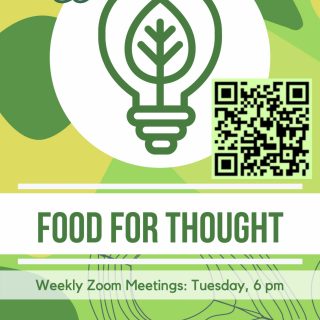
Food For Thought– English Conversation Class in Zoom (履修登録不要)
We would like to welcome all Japanese students at Nagoya University to join the Food for Thought discussion sessions. Food for Thought discussion session is a weekly meeting among Japanese and international students based around a different topic each week. Topics of conversation range from food culture to climate change to around the world travel. The aim of this course is to give Japanese students a chance to improve their English conversation skills in an academic setting. We will practice the skills of argumentation and debate and how to express your own opinion in an effective manner. If you are the kind of person who thinks: “I wish I had more chances to meet international students and practice English in real life instead of just reading this old textbook!”, then this is the chance for you to get some conversation practice! There is no minimum limit of English knowledge required, you can just join in and listen if you want to. Our plan is to bring together students from different majors and backgrounds and to increase interaction between Japanese students and international students. We want to offer students a chance to get to know new people and widen their understanding of the world by looking at complex topics from different points of view. As this is an informal gathering we also encourage you to relax and maybe have a snack while participating.
The Food for Thought discussion sessions are held in Zoom every week on Tuesdays at 18:00-19:00:
Zoom へのアクセス情報:https://nuss.nagoya-u.ac.jp/s/csNnHcWwcM6ic5k
NUCTページ:https://ct.nagoya-u.ac.jp/portal/site/2020_1_9900084
So grab a snack and make some friends, we hope to see you on Tuesday in Zoom!

Inorganic Chemistry I/ Gabor Samjeske
If you like(d) your Japanese Course(s) in Chemistry and would like to challenge your English language skills this might be the course for you. In other words: “You haven’t failed until you quit trying.
“The main purpose of this course is to acquire a logical framework for understanding fundamental organic chemistry. Many chemical reactions of organic compounds begin with nucleophile-electrophile interactions. This framework provides an influence for chemical reactions of the organic molecules having π-bonds. On the basis of the knowledge educated following the course contents, the students will be able to solve progressive problems sequentially.

Exploration of Japan: From the outside looking inside/ Hitomi Takaki
留学生や一般学生との多文化間コミュニケーションに興味があり、「文化」や「多様性」について探求したい方、将来、海外に行きたい方、海外での経験を振り返りたい方、国際的に活躍したい方など、授業の履修をお待ちしています。多様なバックグラウンドを持つ学生同士で出逢い、視野を広げ、共に国際感覚を養っていきましょう。

Monday Spring 2020

Quantum Chemistry I/ Peter Butko
Attending my course will give you multiple benefits all at the same time: 1. learning quantum chemistry, 2. learning professional English (understanding, writing, and speaking), 3. finding international friends. I will work with you individually, whenever needed, to assure your success.

(G)Early Modern Japanese Culture/ Dylan McGee
In this course, we will be examining representations of the supernatural in early modern (Edo period) Japanese literature and visual culture. If you are interested in the topic, feel free to attend!

(G)Studies in Japanese Picture Scrolls/ Dylan McGee
In this course, we will be studying several examples of medieval and early modern handscrolls, beginning with the Tale of Genji Scrolls and the Choju giga. If you are interested in the topic, feel free to attend!

Basic Mathematics/ Erik Darpö
Japanese students will probably be familiar with most of the material in this course from high school. The course is primarily intended for students of the social sciences, but anyone is welcome!

Japanese Literature and Gender/ Kristina Iwata
Anyone who likes reading and discussing literature is welcome to join the course. Please email me if you are interested! email: kristina.iwata@nagoya-u.jp
Note:Most texts are available in Japanese. Students will be given adequate support by the instructor, no additional support needed.

Introduction to Empirical Research/ Maria Martin Rodriguez
The course will cover the basics of cross-sectional data analysis, and students will have the chance to practice coding in STATA.

社会科学の分析と方法Ⅱ Social Science Analysis & Methods Ⅱ, Matt Linley
Learn the basics behind doing empirical research in the social sciences

Chemistry of Inorganic Materials II/ Gabor Samjeske
This course is part II of a two-part course that teaches some fundamentals of solid-state chemistry like ceramic materials, alloys or new materials. Analytical methods but also material properties like magnetism, electric, magnetic, and optical properties will be studied. Important: In this course every student must give a short presentation! If you like to train your presentation skills in English you are very welcome to join!
Monday FALL 2019

Physiology and Anatomy 1 / Maria VASSILEVA
I’m happy to welcome you in G30 courses! And I’m sure the experience will open many new doors for you – new friends, new perspectives to the world and new ideas. If you are worried you will not be able to fit in – try it anyway! We often underestimate our own abilities.
Treat it as a challenge, an adventure, and focus on what you CAN do. You will be surprised how much you actually can understand and do.
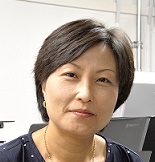
Biochemistry I / Young-Jai YOU
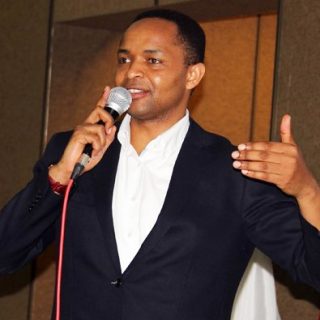
Inorganic Chemistry II / Gabor SAMJESKE

Cell Biology 2 / Maria VASSILEVA
I’m happy to welcome you in G30 courses! And I’m sure the experience will open many new doors for you – new friends, new perspectives to the world and new ideas. If you are worried you will not be able to fit in – try it anyway! We often underestimate our own abilities.
Treat it as a challenge, an adventure, and focus on what you CAN do. You will be surprised how much you actually can understand and do.

Introductory Macroeconomics I, Maria MARTIN-RODRIGUEZ

Fundamentals of Earth Sciences I / Marc HUMBLET
Welcome to the NU-EMI project! I am a geologist at NU teaching Earth Sciences-related courses. If you are interested, please don’t hesitate to join in!
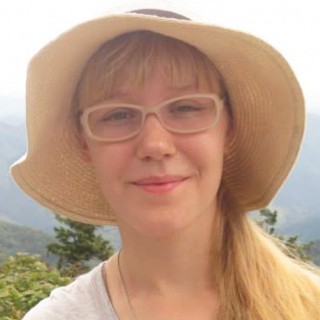
“Fundamentals of Earth Science I” Review Class Syllabus
この講義のStudy Session (Review Class)は大学院生の Ilona Sakaguchi さんが担当します。昨年大変好評でした。実施時間は参加者の合意で決めるそうです。

Post-Cold War Security Issues/ Matthew Linley

Quantum Mechanics II / John Wojdylo
Japanese students should also do the assignment questions and attend the tutorial, where you’ll get about 50% of the solutions.
You will not learn anything unless you can solve problems. (This is also true for Statistical Physics 2.)
The style of this course is different to Japanese style. It is not minimalist.
You’ll get a wider education, designed to increase you knowledge and technical ability.
The first lecture was held September 30th but I will upload a video to Youtube so anyone who is interested in the course but missed the first lecture can watch it online. I can send the link to anybody who is interested.
Thursday FALL 2019

Analytical Chemistry, Gabor Samjeske

Special Topics in Biology V / Maria VASSILEVA
I’m happy to welcome you in G30 courses! And I’m sure the experience will open many new doors for you – new friends, new perspectives to the world and new ideas. If you are worried you will not be able to fit in – try it anyway! We often underestimate our own abilities.
Treat it as a challenge, an adventure, and focus on what you CAN do. You will be surprised how much you actually can understand and do.
春学期に人気のあったSpecial Biologyの続編です。
注意:履修登録の修正期間になってからオンライン登録が可能になります。

Chemistry of Inorganic Materials I, Gabor Samjeske

Science of Materials, Bernard Gelloz

Fundamentals of Physics I, Masaki Shigemori

Preparedness for Imminent Natural Disasters / LELEITO Emanuel, NAGAE Takuya
Wednesday FALL 2019

1st year seminar A, Marc Humblet
Welcome to the NU-EMI project! I am a geologist at NU teaching Earth Sciences-related courses. If you are interested, please don’t hesitate to join in!

Advanced Lecture (Case Study of International Commercial Arbitration), Giorgio Fabio COLOMBO

Fundamentals of Biology I, Joyce Cartagena
講義室:教養教育棟C14

“Special Mathematics” Introduction to Functional Analysis, Serge Richard
この講義は日本人学生にも人気と実績があります。
Tuesday FALL 2019

Physical Chemistry I, Peter Butko

“Seminar in Agricultural Sciences 3” / “Academic Presentation Skills” Joyce Cartagena
木曜 1時限 講義室:農学講義室3
英語プレゼンテーションの手法が学べる貴重な授業

Genetics 1, Maria Vassileva
I’m happy to welcome you in G30 courses! And I’m sure the experience will open many new doors for you – new friends, new perspectives to the world and new ideas. If you are worried you will not be able to fit in – try it anyway! We often underestimate our own abilities.
Treat it as a challenge, an adventure, and focus on what you CAN do. You will be surprised how much you actually can understand and do.

Vehicle Engines and New Propulsion Systems, Fujio Takimoto

Biotechnology , Joyce Cartagena
講義室:教養教育棟C35

Comparative Law 1 (Common Law), Sean McGinty

Calculus I, Serge Richard
Friday FALL 2019

Modern Japanese Culture and Asia, Nathan Hopson

Earth and Plantery Science, Marc Humblet
Welcome to the NU-EMI project! I am a geologist at NU teaching Earth Sciences-related courses. If you are interested, please don’t hesitate to join in!

Cell Biology 1, Maria Vassileva
I’m happy to welcome you in G30 courses! And I’m sure the experience will open many new doors for you – new friends, new perspectives to the world and new ideas. If you are worried you will not be able to fit in – try it anyway! We often underestimate our own abilities.
Treat it as a challenge, an adventure, and focus on what you CAN do. You will be surprised how much you actually can understand and do.

Earth and Plantery Science Review Class
この講義のStudy Session (Review Class)は大学院生の Ilona Sakaguchi さんが担当します。昨年大変好評でした。実施時間は参加者の合意で決めるそうです。

Introduction to Modern Japanese Literature / Kristina Iwata

Readings in Modern Japanese History, Nathan Hopson
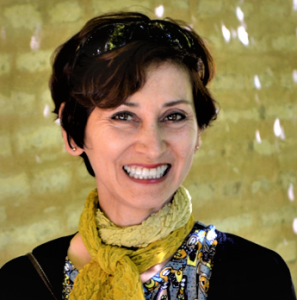
A Multicultural Approach to Contemporary Issues / Michelle HENAULT-MORRONE
人数上限に達しました/This course is full this year

Statistical Physics II / John Wojdylo
Japanese students are not used to this teaching style. But it works and is good for you.
Studium Generale ストゥディウムゲネラーレ
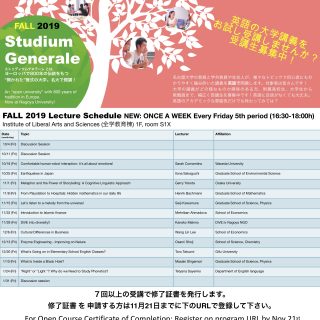
Studium Generale/ストゥディウムゲネラーレ
Fall 2018 先輩受講者からのアドバイス

